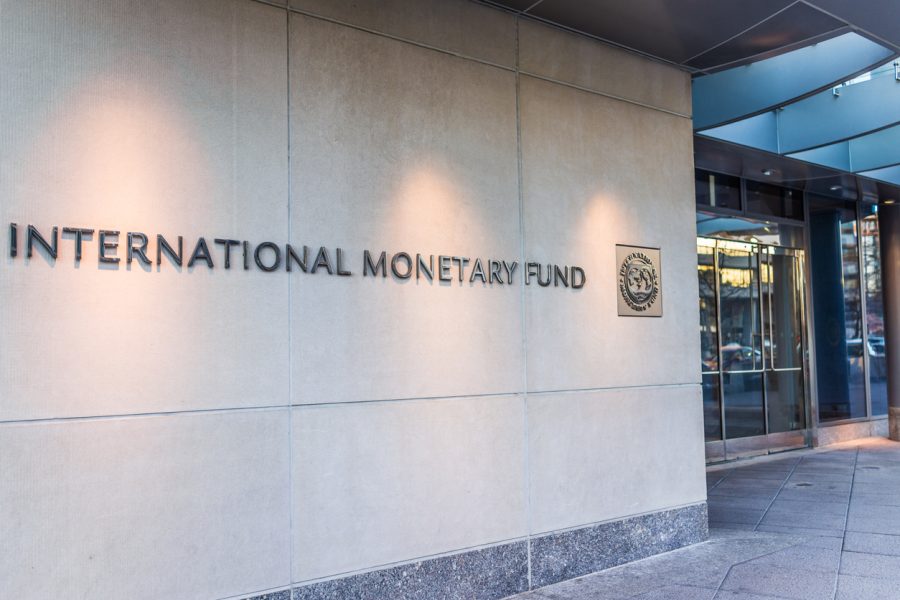
Pakistan seeks loans from IMF, World Bank; can India thwart it?
India prepares to formally oppose the move, raising concerns about terror funding and questioning Pakistan’s track record with past assistance

A crucial meeting of the International Monetary Fund (IMF) and the World Bank (WB) executive boards is set to take place on Friday (May 9) in Washington DC, with Pakistan’s request for additional financial assistance under close international scrutiny.
This comes as India — one of the major contributors to both institutions — prepares to formally oppose the move, raising concerns about terrorism and questioning Pakistan’s track record with past aid.
Pakistan’s request
Pakistan is asking the IMF for a fresh $1.3 billion loan to support its climate resilience efforts. This is on top of the $7 billion bailout programme approved in 2024, which is part of the country’s 24th IMF deal since 1958.
Also read | Look 'deep within' before extending package to Pakistan: India to IMF
Pakistan’s $350 billion economy has been under serious strain — hit hard by natural disasters, political uncertainty and a lingering balance of payments crisis. As a result, it remains heavily dependent on external financial support.
In parallel, the World Bank has committed a $20 billion aid to Pakistan package spread over the next 10 years, aimed at long-term goals like fighting poverty, improving child welfare and building resilience to climate shocks. But implementation hasn’t been smooth. Political instability and shifting government priorities have slowed progress, prompting the Bank to design a 10-year strategy that tries to shield key projects from these disruptions.
Pakistan and terrorism
India is pushing back. Officials have launched a diplomatic campaign urging the IMF, the World Bank and other multilateral lenders to rethink continued support for Pakistan.
This follows the April 22 terror attack in Pahalgam in Jammu and Kashmir, where 26 civilians were killed. Indian authorities say the attackers were Pakistani nationals.
India’s Foreign Secretary Vikram Misri confirmed on Thursday that its IMF representative will formally present New Delhi’s objections during Friday’s board meeting. Misri emphasised that India is a net donor to both the IMF and World Bank, and said any country receiving aid should meet strong standards for transparency and accountability.
FATF Grey List
He cast doubt on the effectiveness of previous IMF bailouts for Pakistan, noting that many of them haven’t led to lasting economic stability.
India is also calling for Pakistan to be placed back on the Financial Action Task Force (FATF) “grey list”; a designation that could further restrict its access to global funding.
Also read | IMF loan deal: Pakistan to scrap 150,000 govt posts, close 6 ministries
The FATF grey list flags countries with weak safeguards against money laundering and terrorism financing. While it doesn’t bring automatic sanctions, it can lead to reduced foreign investment, higher borrowing costs and hesitation from global financial institutions to engage.
IMF and Pakistan
The IMF offers loans to member countries to help stabilise their economies, particularly when facing balance-of-payments problems. It is funded by 190 member nations, with contributions tied to each country’s economic weight.
It also uses Special Drawing Rights (SDRs); a type of reserve asset that members can use to boost their currency reserves, repay debts or trade for usable currency.
As of 2024, Pakistan held around SDR 734 million. Allocating or approving the use of SDRs requires an 85 per cent majority vote from the IMF board.
Hanging in balance
The loan Pakistan is requesting is vital — it’s tied to the next tranche of funding under the current programme, which it needs to avoid default and stabilise the economy. But India’s opposition adds a layer of political friction to what is otherwise a technical process.
So far, the IMF has declined India’s request to revisit Pakistan’s existing programme. The board is expected to evaluate the new loan request based on Pakistan’s compliance with the current terms and on economic, not political, criteria.
The outcome of Friday’s meetings won’t just shape Pakistan’s short-term financial future — it will also reflect how international institutions manage the tricky overlap of money, politics and security.
With India pressing for a tougher stance and the IMF trying to stay focused on the numbers, the decisions made this week could set the tone for future funding battles in South Asia.
